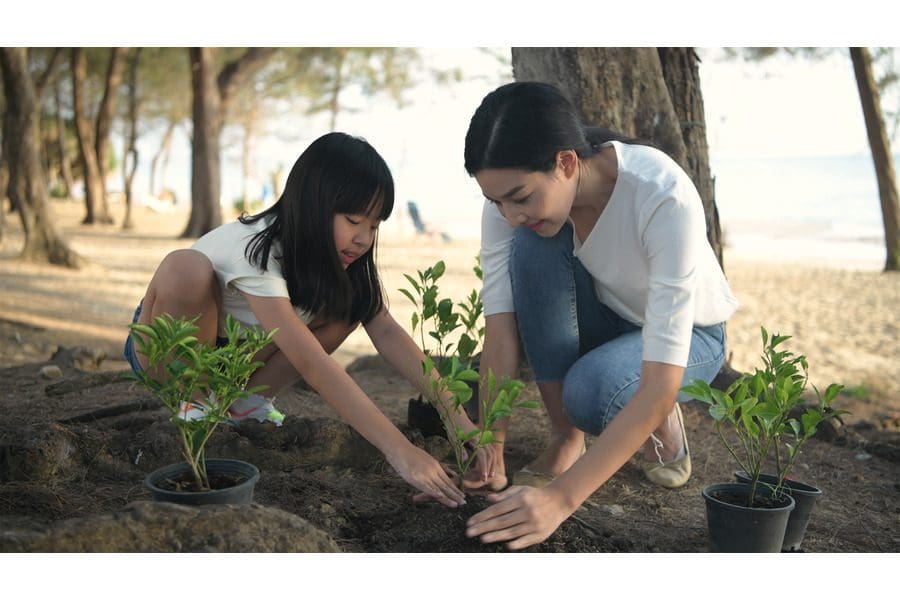Instilling eco-friendly values in children is now more critical than ever. We not only safeguard a sustainable future by encouraging the next generation to practice environmental responsibility, but we also provide them with the tools they need to positively impact the world. Here, we examine a few strategies for teaching children to be more eco-conscious.
Why It Matters
It’s crucial to understand why eco-consciousness is important before teaching children about it.
Nurturing a Love for Nature
One of the main benefits of teaching children about eco-consciousness is the ability to foster a love of nature. Kids exposed to the natural world’s beauty are more inclined to want to preserve it.
Creating Habits That Stick
Early instruction about environmental awareness can help children form lasting habits. These practices, such as recycling, water conservation, and trash reduction, become routine and have a long-lasting favorable effect on the environment.
Empowering Future Change-Makers
We encourage the next generation of environmental activists to drive change and contribute to a healthy planet.
Teaching Children to Be Eco-Conscious
Set the Bar High
Children emulate the actions of the adults in their lives. Being an eco-conscious role model is the best place to start if you want your children to be environmentally aware. In your daily life, demonstrate to them how to reduce, reuse, and recycle.
Get Close to Nature
Go on outdoor excursions with your children, whether a stroll through the woods, a trip to the beach, or a day at the neighborhood park. Spending time in nature helps kids better understand how important it is to protect the environment.
Encourage Curiosity
Encourage your kids to ask questions by asking them yourself. What causes the color shift in fall leaves? How is recycling carried out? Fostering environmental curiosity can inspire a lifelong love of learning about the world around us.
Make It Fun
Environmental education doesn’t have to be dull. Make it a game or an enjoyable hobby. For instance, you could design a scavenger hunt for your kids at your neighborhood park that requires them to find and clean up trash in exchange for prizes.
Use Eco-Friendly Products
Use reusable products instead of disposable ones. For instance, stainless-steel water bottles and cloth shopping bags can replace plastic. Engage your children in this process and explain the rationale behind your decisions.
Discuss Conservation
Explain to your children why saving resources like water and energy is important. They might enjoy competing to take the quickest shower or remembering to turn out the lights when they leave a room. Create a family contest to promote participation.
Gardening Journeys
Engage your children with gardening – even if it’s just a tiny balcony. Let them sow seeds, care for plants, and observe their development. It’s a great way to teach them about nature and food sources.
Reduce, Reuse, Recycle
Remind children to “reduce, reuse, and recycle.” Describe how being eco-conscious includes decreasing waste, reusing products, and recycling resources. Make a recycling station in your home, and get your kids involved in the sorting process.
Explore Sustainable Food Choices
Discuss sustainable food choices with your children. Teach children how to read labels so they choose groceries wisely. Enjoy making meals together using organic, local ingredients.
Make Friends With Wildlife
To introduce your kids to various species, visit zoos, aquariums, and wildlife refuges. Talk about conservation efforts and how they keep animal habitats safe.






